Could crowdfunding your project leave you bankrupt?
You may think crowdfunding is the answer to your financial woes, but it could result in more trouble that it's worth.
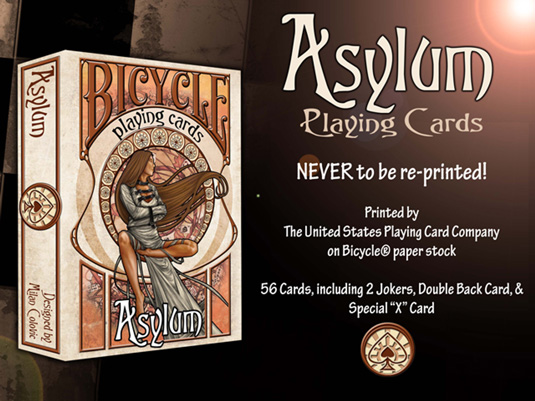
Back in 2012, a Kickstarter was launched to help fund a set of playing cards entitled Asylum. Aiming to generate $15000, the project wound up making a total of $25146.
It was pitched as "a fully customized Bicycle® Playing Card Deck - unlike any deck you've ever seen – and ONLY to be printed once. Designed by Serbian artist Milan C., and managed by entertainment industry veteran Ed Nash - this is a limited deck that you are going to want to own."
And want to own, people did. But as the date of estimated delivery came and went it looked highly unlikely that this would be a reality.
Sadly, with so many disgruntled backers who have pledged money never to receive the proposed product in the land of Kickstarter, it was high time someone was made accountable – and so came a court case.
With no updates from the team since July 2013 (seven months after the estimated delivery date), it wasn't until May this year, when the court case had already decreed that Asylum Playing cards creators, Atlius Management and Edward J. Polchlopek would have to pay over $54,000 in fines and settlements, that backers finally started to receive their precious playing cards.
Kickstarting debt

While this is great for backers, as Kickstarter projects that don't go ahead will be required to return you the money, what does this mean for creators?
Could looking to Kickstarter end up with you out of pocket because your creation is taking longer than expected – even when you did in fact spend that hard-earned cash on the artistic endeavour you promised?
Daily design news, reviews, how-tos and more, as picked by the editors.
We caught up with artists who have run Kickstarter campaigns to hear their thoughts on the ruling.
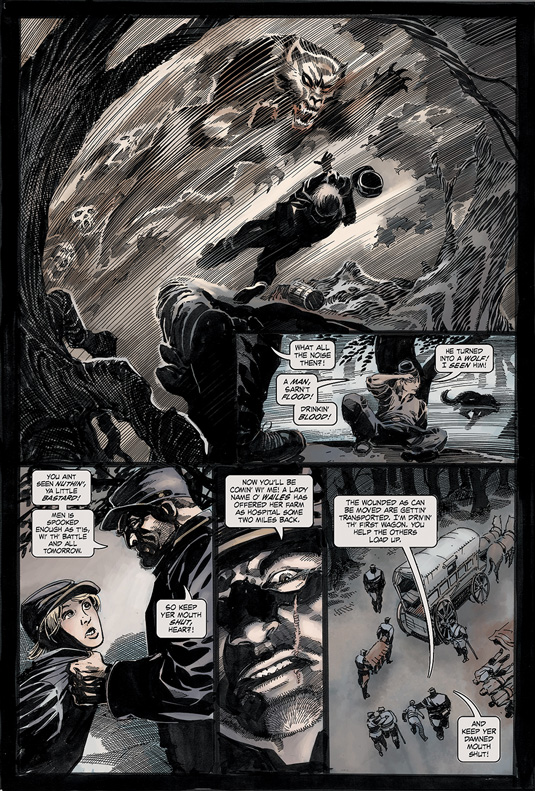
Comic book veteran Tom Mandrake only just finished his Kickstarter campaign for his comic book collaboration with John Ostrander, Kros: Hallowed ground (read more about it here).
The artist comments that these issues are something he is more than aware of, "this is a nightmare scenario...I mean literally, for me, a nightmare I've had about not finishing Kros!"
He feels, however, the judgement was a fair one. "Of course I don't know the behind the scene details. As a backer of other Kickstarters I'm comfortable with the idea of delays because I understand that things happen which can be out of the control of the creators."
Communication is key
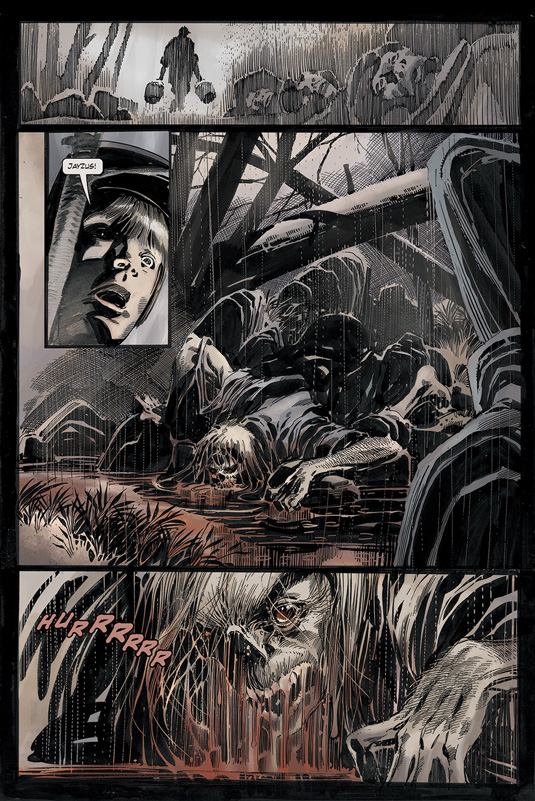
Tom feels the biggest downfall in the case of Asylum is communication.
"Key in any delay is contact with your backers, let everybody know what is happening and most people will understand," he explains.
"In this case though it seems like management just disappeared for 2 years and didn't bother to say anything to anybody so they were setting themselves up for the lawsuit."
"As the creator of a Kickstarter I just don't want to put myself in that position in the first place. I intend to do my best to stay in touch with our backers during the whole process. John and I are trying to hammer out a way to blog/update on a regular basis but haven't hit a stride yet, mostly because we've been working on the final version of the script and pencil pages."

Amanda Makepeace also ran a successful kickstarter, "Kickstarter's take a massive amount a planning. I ran a successful campaign in March for a small book of sketches. My success was nothing like the numbers for the Asylym campaign. However, the same rules apply," she comments.
"The updates sent out to backers of Asylum ceased in July 2013. That's never a good sign. As a campaign runner, you must keep your backers in the loop through the entire process."
Even the Score

As a creator, Amanda, like Tom agrees that it was a fair outcome, "I don't blame them for filing a suit. It seemed clear that the campaign was not going to fulfil it's promise since the cards were more than 6 months late and they'd not heard from the campaign creator."
She feels this is a warning to anyone thinking about starting a campaign, "Do your research! As far as the number's go for the suit. It makes sense to repay those backers, but the fines and fees seem excessive and only serve to possibly ruin this poor guy's life. I don't think he set out to steal the backers money. I think he was overwhelmed by the number of backers."
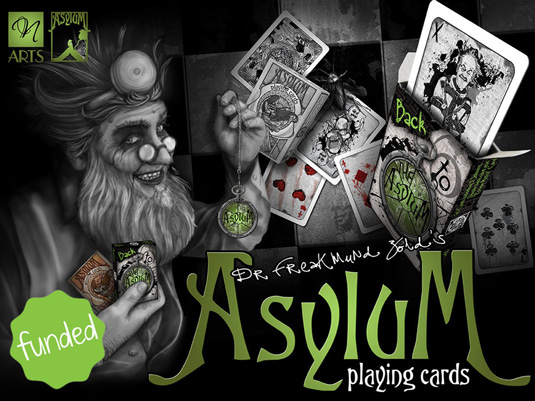
In the case of Asylum, artist Milan Colovic went out of his way to organise another campaign in order to offer an extra pack of cards to those who had been late in receiving when backing his original campign - one he didn't personally organise or run.
Tom thinks this is a good outcome, "I think the artist went out of his way to try to make it right with the fans, I'd do the same thing in his position and do what I could even if it wasn't my fault."
Forward Planning
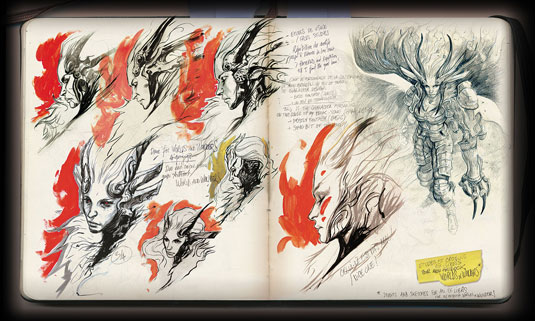
Aleksi Briclot used Kickstarter to bring his personal project to life, and since the campaigns success he has been inspired to create a comic book based on the initial statue he funded through the site.
He agrees with Amanda - that preparation is essential: "Every kickstarter needs a lot of preparation as well as a business-plan, and being sure that you'll be able to produce and deliver the goodies is part of it.
"It isn't like, 'let's launch a Kickstarter for selling our stuff and then we'll make enough money to fulfill our dream!' - It can be seen in some way like creating a short business venture."

His own experience made him realise that crowdfunding is about a lot of preparation. "Thinking about what you'll offer, your products, the costs, the goodies."
But, again, he agrees with Tom and Amanda: Communication is possibly the most important aspect.
"The communication is also essential! Explaining what your product is, why are you doing this Kickstarter and keeping some strong sharing with your community. In few words it's about making it doable and worthwhile."
Words: Alice Pattillo
Like this? Read these!

The Creative Bloq team is made up of a group of art and design enthusiasts, and has changed and evolved since Creative Bloq began back in 2012. The current website team consists of eight full-time members of staff: Editor Georgia Coggan, Deputy Editor Rosie Hilder, Ecommerce Editor Beren Neale, Senior News Editor Daniel Piper, Editor, Digital Art and 3D Ian Dean, Tech Reviews Editor Erlingur Einarsson, Ecommerce Writer Beth Nicholls and Staff Writer Natalie Fear, as well as a roster of freelancers from around the world. The ImagineFX magazine team also pitch in, ensuring that content from leading digital art publication ImagineFX is represented on Creative Bloq.
